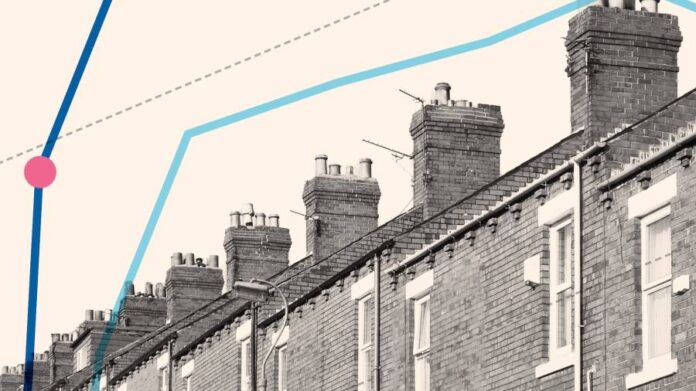Nine months into a housing boom, the prospect of a slowdown is growing. Plans to wind up key government coronavirus support measures look set to reveal the true health of a market hit hard at the bottom end by a cladding safety crisis.
The housing market has defied the wider economic downturn since the pandemic began with prices hitting a four-year high in November, driven in large part by a stamp duty holiday introduced last July as part of a government stimulus package during the pandemic.
Beneath the headline figures, the latest housing boom has been driven by wealthier homeowners, while many first-time buyers and those with their feet on the bottom rung of the property ladder have been excluded.
The planned removal of the stamp duty holiday on March 31, followed by the winding up of the furlough scheme a month later, will test the underlying strength of the market.
The stamp duty holiday was introduced in July and exempts buyers from paying the transaction tax on the first £500,000 of residential property purchases, saving them up to £15,000.
Despite pressure from the industry to extend the holiday to prevent thousands of people currently in the process of buying a home from missing out, the Treasury has signalled it intends to end the tax break as planned.
“There are an enormous numbers of deals under way and stories of deals collapsing are not going to be hard to find . . . Particularly at the moment when the furlough scheme is unwinding this friction is not what’s needed,” said Tom Bill, head of UK residential research at estate agency Knight Frank.
The last time a stamp duty holiday was withdrawn, after the financial crisis in 2008, the surge in sales it prompted fell away sharply.
“There’s an expectation of a lull in the market post-stamp duty holiday, and the risk of some house price falls in the market, not least because unemployment will rise when furlough ends,” said Lucian Cook, head of residential research at Savills.
Price growth is already slowing from the runaway levels seen last year, according to various indices. Average prices fell 0.3 per cent between December and January, according to Nationwide Building Society’s house price index, published on Tuesday. Individual monthly indices can be volatile, but the trend line clearly shows the momentum from the summer dissipating.
According to property data company TwentyCi, the biggest spike in demand over recent months has been for larger homes outside of London worth between £450,000 and £800,000, reflecting the pandemic trend of richer city dwellers moving to more rural locations.

Mr Cook said the UK’s housing market was likely to remain divided “between the haves and have nots”, as it was in the latter half of 2020.
For those at the bottom of the property ladder, there are few signs of the market getting any easier. Not only are they more likely to lose their jobs when the furlough scheme ends, but also mortgage lenders have pulled many of the high loan to value mortgages on which they typically rely.
The most alarming drag on the market is the growing crisis around building safety, which according to estimates by the opposition Labour party has left as many as 4.6m properties in England unsellable — largely flats bought by first-time buyers.
The government is under pressure to come to the help of owners unable to sell their homes because of concerns about the safety of cladding used on the exterior of thousands of apartment blocks, which were exposed by the fire at Grenfell tower in London in 2017, in which 72 people died. Lenders have refused to offer mortgages on these properties, in effect meaning they are unsellable.

“The cladding issue is a nightmare. People are locked in their properties and can’t move on and sell them, while service charges and insurance mean vastly increased costs . . . It’s also far from helpful for the health of the whole property market,” said Dominic Agace, chief executive of Winkworth, the estate agent.
But analysts remain optimistic that despite all the headwinds the housing market will not fall off a cliff.
The average property transaction takes 22 weeks to complete, according to TwentyCi, which should mean any would-be buyer who has committed to a deal in the past two months would have done so knowing they would likely miss out on the stamp duty holiday.
And in December, demand was 50 per cent higher than the previous year, according to TwentyCi’s data. Moreover, Knight Frank and Winkworth recorded more buyers entering into contracts in January than during the same month last year, suggesting a willingness to buy even without the advantage of the tax break.
The number of sales already in train mean that average prices — which are recorded once a sale completes — are unlikely to fall meaningfully, at least for the first few months of the year, said Stuart Ducker, a director at TwentyCi.

Wealthier buyers moving for lifestyle reasons, who have accounted for a growing share of sales over the past year, are also unlikely to be deterred by the loss of the stamp duty break, analysts said.
Mr Ducker said prices could even rise, because — with the exception of London — the supply of homes hitting the market for sale has dipped below the level of buyer demand in the past two months.
But the prospects of a buoyant market could be undermined by the cladding crisis. If that situation persists or worsens, it could threaten the stability of the wider market, Mr Ducker warned. Without first-time buyers, those further up the ladder can’t sell and the “chain collapses”, he said.
Credit: Source link










